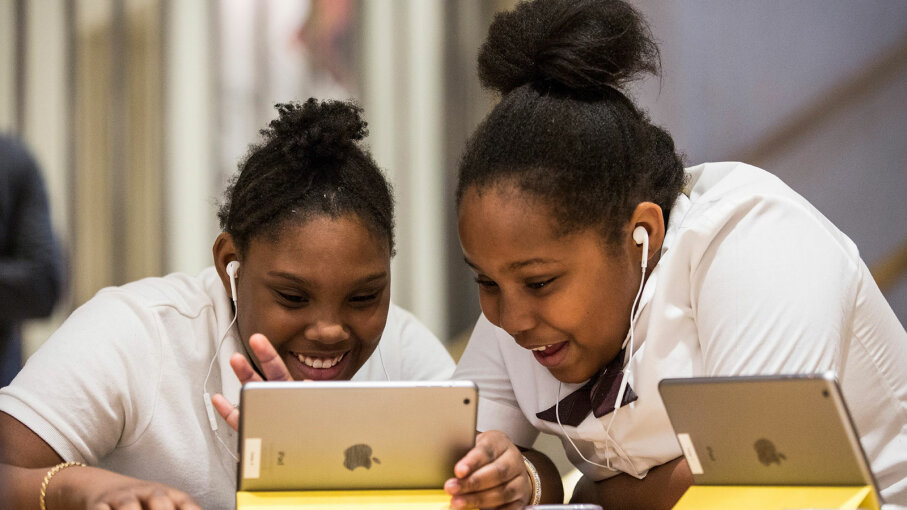
'Hour of Code' Demystifies Computer Programming for Kids
by Nathan ChandlerAdvertisement
From banking to basic communication, computers wind their way through virtually every aspect of our modern lives. But in the United States, most schools don't teach fundamental computer science, even at a time when demand for computer-savvy professionals far outstrips supply. This educational deficiency leaves kids completely clueless about how their own digital devices (which they're often glued to) work.
That glaring gap inspired the project Hour of Code. Hour of Code (offered by the nonprofit Code.org) gives children a peek into the world of coding through easy, fun coding tasks, which expose them to the problem-solving skills and limitless potential of computer programming. Activities are designed to be completed within an hour, though, of course, a student can go on to perform multiple tasks.
The first Hour of Code event happened during Computer Science Education Week in December 2013, the brainchild of Iranian-American brothers Hadi Partovi and Ali Partovi, who decided that someone needed to do more to spark interest in coding.
The initial event was a massive success, engaging roughly 20 million people who wrote hundreds of millions of lines of code. It was soon followed by a now-famous YouTube video featuring some of the biggest names in tech, who shared that their own early forays into programming were simple tasks, like creating shapes or questionnaires.
Now, anyone can organize an Hour of Code event, which takes place the second week of each December. The curriculum and associated resources are totally free, tutorials are available in 20 languages, and some can be done even without a computer, smartphone or other device. Anyone from kindergarteners to adults can participate, and events can even be planned outside of this time frame.
Hour of Code promoters don't claim that a few hours of coding will turn anyone into a computer scientist. But they do think that it's beneficial to society as a whole when the inner workings of computers are demystified, and when young people have a better grasp of creative problem solving.
To find Hour of Code activities in your state or country, go to Hour of Code. Or you can simply use the free tutorials.
NOW THAT'S INTERESTING
Although the computer industry is dominated by males, the first computer programmer was a 19th-century British mathematician named Ada Lovelace. She created an algorithm that's been described as the world's first computer code. Another pioneering female programmer, Admiral Grace Murray Hopper, has a birthday on Dec. 9. In tribute, Computer Science Education Week is always held in the second week of December.